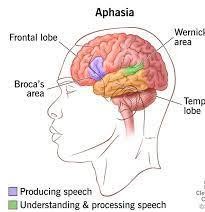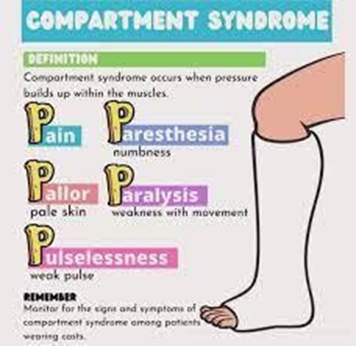A 45-year-old man on the neurology floor can understand instructions but is unable to express himself through talking. Which lobe of the brain controls the expression of speech?
Frontal lobe
Occipital lobe
Temporal lobe
Parietal lobe
The Correct Answer is A
Choice A rationale: The frontal lobe, specifically Broca's area located in the dominant hemisphere, is responsible for expressive speech. Damage to this area can result in expressive aphasia or difficulty expressing speech.
Choice B rationale: The occipital lobe primarily processes visual information.
Choice C rationale: The temporal lobe is involved in auditory processing and language comprehension.
Choice D rationale: The parietal lobe is involved in spatial perception, attention, and sensory information processing.
 |
Nursing Test Bank
Naxlex Comprehensive Predictor Exams
Related Questions
Correct Answer is C
Explanation
Choice A rationale: A glycated hemoglobin (HbA1c) value of 6.9 indicates that the client has prediabetes, which is a risk factor for developing diabetes.
Choice B rationale: A postprandial blood glucose level of 170 mg/dL is within the normal range.
Choice C rationale: This indicates that the client has diabetes mellitus. According to the American Diabetes Association, a diagnosis of diabetes can be made if one of the
following criteria is met: a fasting plasma glucose level of 126 mg/dL or higher, a postprandial blood glucose level of 200 mg/dL or higher, or an HbA1c value of 6.5% or higher.
Choice D rationale: A fasting plasma glucose level of 90 mg/dL is within the normal range.
Correct Answer is D
Explanation
Choice A rationale: Tachycardia and petechiae over the chest wall and buccal membranes are signs of fat embolism syndrome, another complication of fractures that occurs when fat globules enter the bloodstream and obstruct pulmonary vessels.
Choice B rationale: Positive Homan's sign with calf tenderness and warmth are signs of deep vein thrombosis, a condition that can occur after prolonged immobilization or surgery.
Choice C rationale: Acute cough, cyanosis, and decreased blood pressure are signs of pulmonary embolism, a life-threatening condition that occurs when a blood clot travels to the lungs and blocks blood flow.
Choice D rationale: These are signs of compartment syndrome, which is a serious complication of fractures that occurs when increased pressure within a closed space compromises blood flow and tissue perfusion. Compartment syndrome can lead to ischemia, necrosis, and nerve damage if not treated promptly.

Whether you are a student looking to ace your exams or a practicing nurse seeking to enhance your expertise , our nursing education contents will empower you with the confidence and competence to make a difference in the lives of patients and become a respected leader in the healthcare field.
Visit Naxlex, invest in your future and unlock endless possibilities with our unparalleled nursing education contents today
Report Wrong Answer on the Current Question
Do you disagree with the answer? If yes, what is your expected answer? Explain.
Kindly be descriptive with the issue you are facing.
